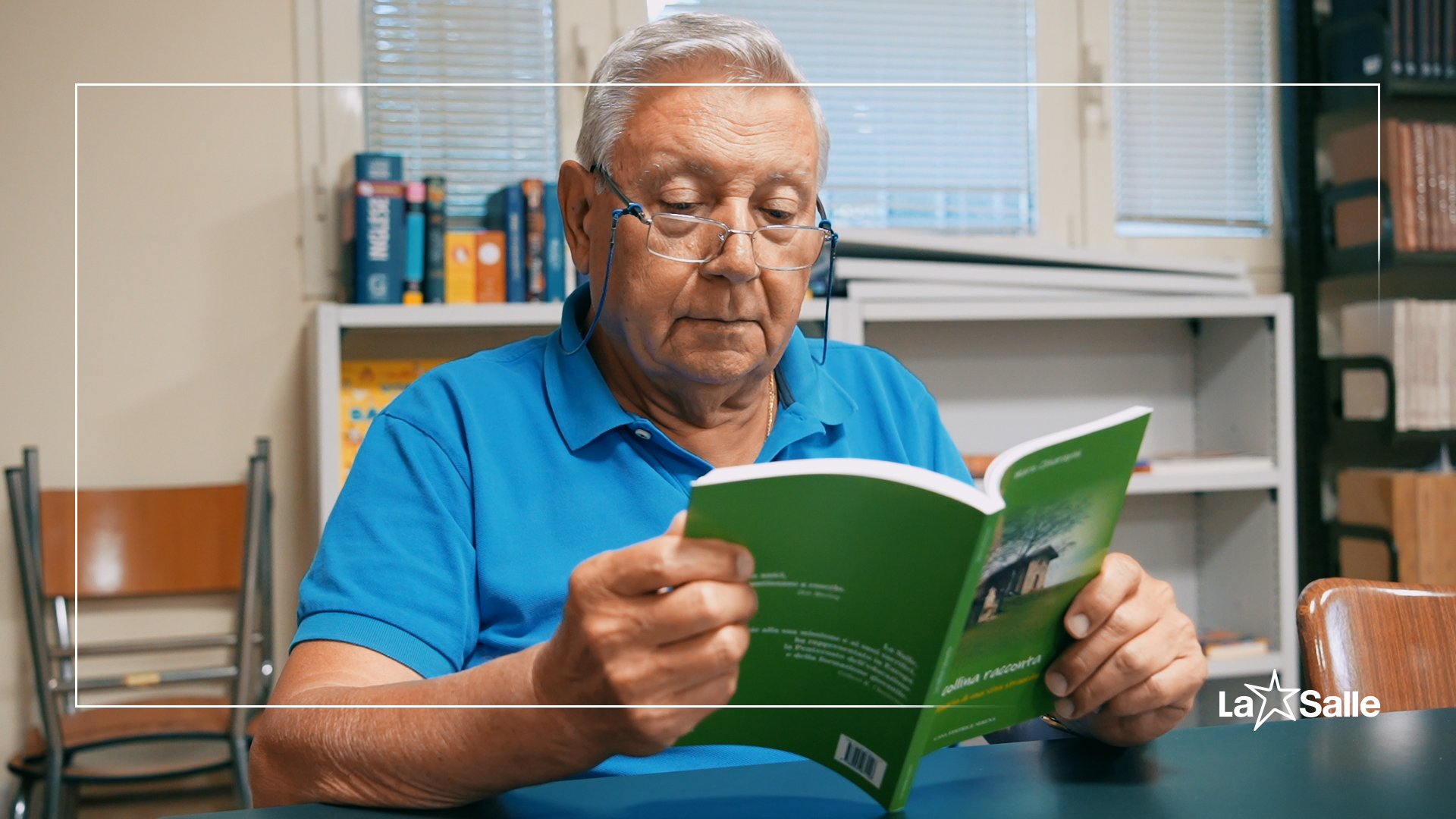Mario Chiarapini, a Brother of the District of Italy and Director of the Office of Lasallian Charismatic Family, tells us about his love for music, which he discovered as a child, and at the same time talks about his book La Collina racconta (The Hills Tells), together with the musical composition Sulla collina di Parmenie (On the Hill of Parmenie). ‘I was born on the feast day of the patron saint of music, Saint Cecilia; so I had a special blessing,’ he says, smiling. ‘When I was still in primary school, sometimes I used to go to church to play the organ’.
Only after entering the Brothers’ Juniorate, in Albano Laziale, did Brother Mario begin to study the organ in depth. “Once an adult, a very good Brother, Brother Nicolino Sicignano, who had attended the Conservatory with excellent teachers, introduced me to harmony and composition”. “This experience was also followed by that with Sacred Music with Monsignor Miserachs, who is still Master at the Basilica of St. Mary Major’.
“Among the many compositions I have written, Sulla collina di Parmenie (On the Hill of Parmenie), was written at the same time as the book La collina racconta (The Hill Tells), a somewhat peculiar biography, I would say, on the life of St John Baptist de La Salle,” continues Brother Mario. “In the book, in fact, I imagine a journalist of today going back in time, during the century in which the Founder lived (1600-1700) to carry out some improbable interviews, even to the chair where the Founder taught in Grenoble for a few months, as well as to the grandmother of St John Baptist de La Salle”. Improbable interviews yes, but all reliable because they are linked to the history and life of De La Salle.
The book in question, La Collina racconta, ‘was well received’. “Translated into French by Brother Leon Lauraire,” continues Brother Mario, “it is already in its second reprint”. The Spanish translation, on the other hand, was done by Brother William Duque, at the Universidad De La Salle of Bogotá. While “the English translation still has to be completed”.
“Personally, the inner turmoil that our Founder experienced in 1714 moved me greatly, and from there the idea of the composition On the Hill of Parmenie was born, through which I try to relive the drama of the Saint when he withdrew to this very special place”. It was a dramatic moment in De La Salle’s life, the so-called dark night of the soul in which “he no longer heard the voice of God, he did not understand what his will was asking him to do”, recounts Brother Mario; “he rather felt so many difficulties, indeed he thought that they, in the young Institute, depended on him”.
But then ‘thanks to moments of solitary prayer, but also thanks to the arrival of the Brothers’ letter from Paris in which they asked him to return among them, having taken a vow of obedience, the Founder rediscovered God’s will’.
“The book and the musical composition go hand in hand,” reveals Brother Mario, “there are two important moments in the music. In the first part, one wants to relive the drama, in fact it is written in a minor key. The second part develops in a major key because in it we see the light and the will of God again’. Br Mario has personally visited Parmenie twice and in both cases he felt he was reliving the Founder’s drama. “I am in love with St John Baptist de La Salle and his charism, and I believe it should be rediscovered from a contemporary perspective to appreciate it even more,” concludes Brother Mario.
We invite you to discover on LaSalleOrg Stories the life and most recent works of Br Mario Chiarapini



